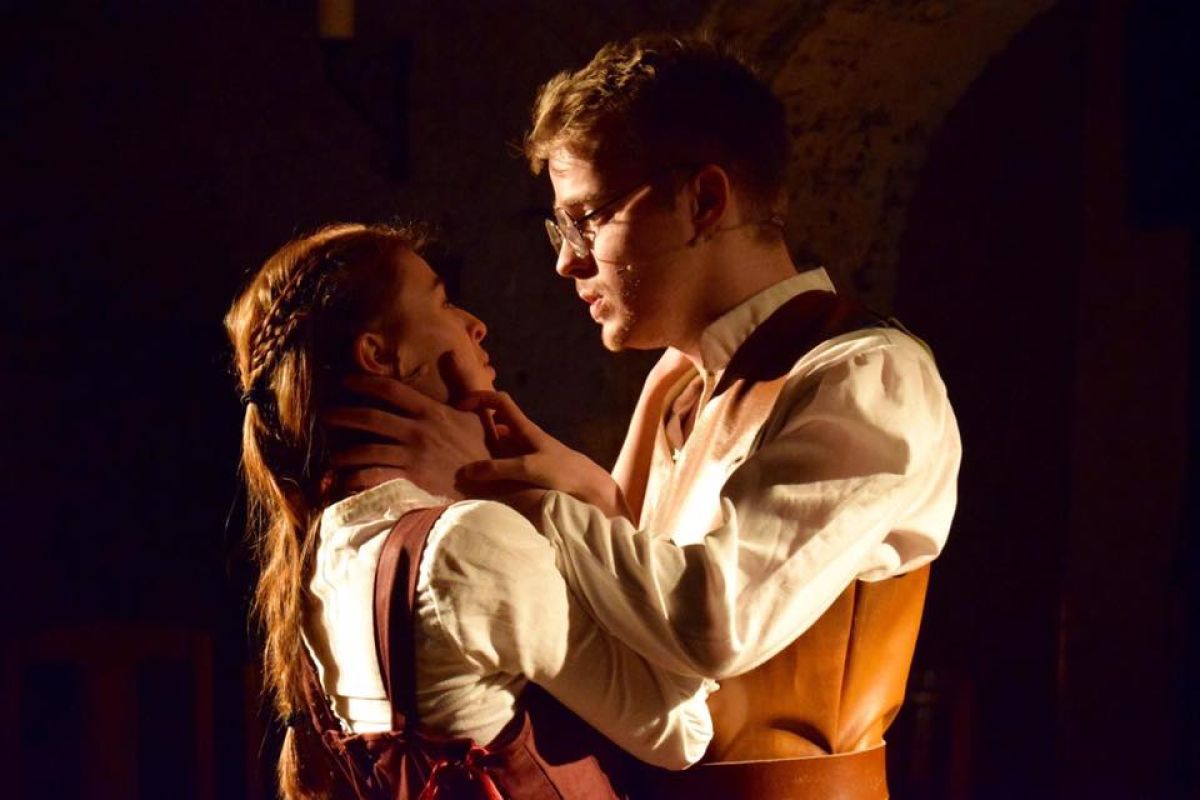Review: The Clockmaker’s Tale
By Will Vincent

You would think that finding yourself sat, head aching, in a candle-lit brick cellar, two floors below ground level would raise a few red flags.
However, last Saturday evening, I was eagerly anticipating University of Manchester Musical Theatre Society’s new writing production The Clockmaker’s Tale, the tantalising mystery of what was to come paralleling an equally mesmerising space.
The Clockmaker’s Tale follows the legend of Gregor (Hugh Beckworth), the creator of the Prague astronomical clock, who falls in love with the Mayor’s daughter, Jana (Mary Morris).
The star-crossed lovers share their hopes and aspirations in the vibrant city of Prague yet must avoid the prying eyes of the bourgeoisie if they have any chance of staying together.
After some brief exposition, the production opens with a murky church procession complete with incense and candle-light, which cleverly bewitched all the senses.
I was transported to an overlooked time of pre-Renaissance darkness, permeated by the promise of the new clock bringing new prospects. The atmosphere was created exceptionally well.
The decision to have a traverse seating plan was an ambitious challenge that worked surprisingly well. I felt deeply integrated sat along the pathway to the clock centrepiece, with the action unfolding all around.
There was a danger of missing some lines, but such incidents were too few and far between to detract from the performance.
The music and singing itself were sublime. Alastair McNamara’s understanding of historical styles supplemented the production beautifully, and the strong cast saw no weak member.
Both Jana and Gregor had a lovely chemistry, which may have developed a little too fast for my liking, but slowly paved the way to a tear-jerking conclusion.
The supporting cast, too, must be commended for their stellar portrayals. Dom McGann’s elegant solo piece ‘Ondrej’s Prayer’ fantastically fleshed out a pleasingly complex antagonist.
Jordan Jones’ baritone voice excellently complemented the Mayor’s sinister character, and the three bar tenants (Nick Rew; Annie Davies; Kate Gabriel) brought a refreshing liveliness to the production.
Kate Gabriel’s multirole of Storyteller needed some minor reconsideration regarding how the character is incorporated into the story, but her energetic delivery demonstrated much to be admired.
Roman Armstrong should also be praised as Krystof, the ever-loyal friend of Gregor who’s improvised comedy did not fail to produce chuckles from every audience member.
However, the mix of styles was sometimes slightly jarring. Perhaps looking at the structure of the storytelling may have led smoother transitions between comedy to romance to horror.
It also would have further emphasised the importance of the clock (Ondrej took the words right out of my mouth: it is, essentially, just a clock), but the artistic licence nicely padded out the fable, adding a marvellous emotional depth.
Despite some minor setbacks, The Clockmaker’s Tale was a thoroughly entertaining production that fashioned an outstanding image of a long-forgotten Prague, contained a superb score and cast and succeeded in telling (somewhat literally) a tale as old as time.







